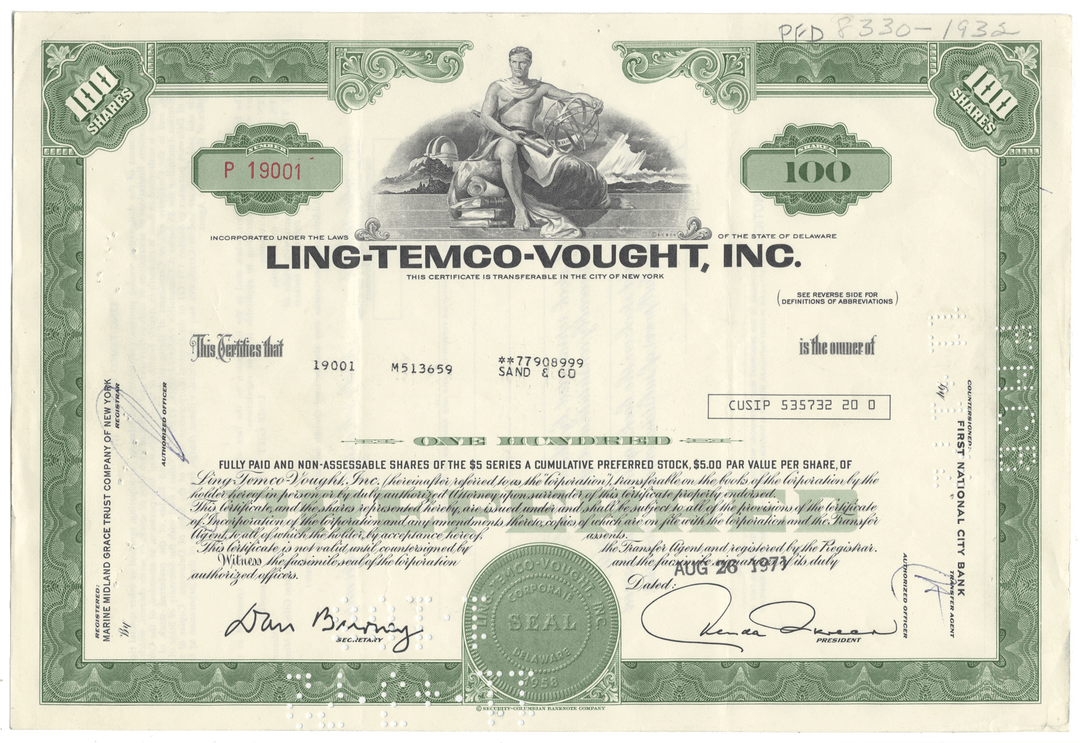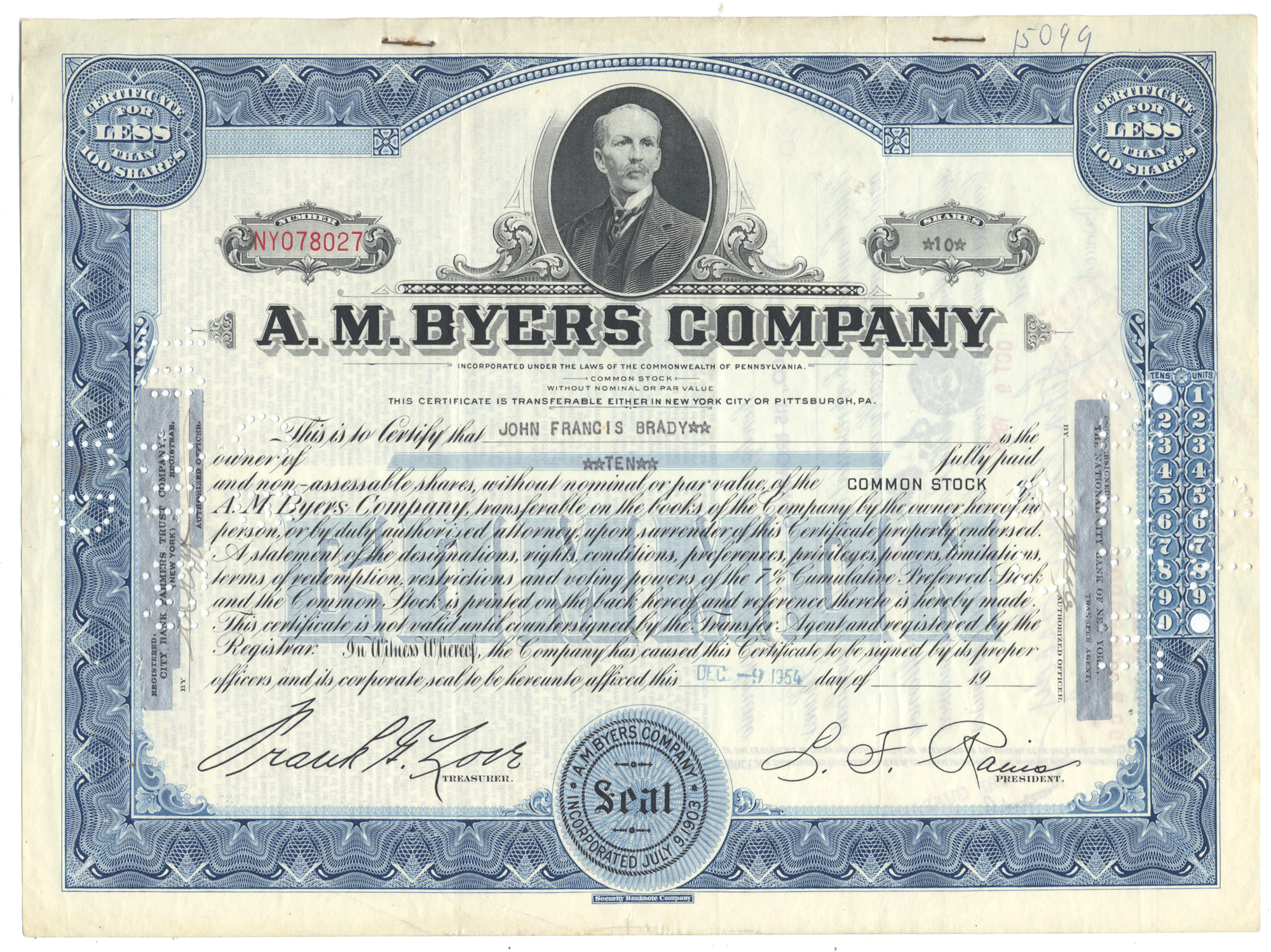
Ling-Temco-Vought, Inc.
- Guaranteed authentic document
- Orders over $100 ship FREE to U. S. addresses
Product Details



Ling-Temco-Vought, Inc.
Certificate Type
Series A Cumulative Preferred Stock
Date Issued
1970's
Canceled
Yes
Printer
Security-Columbian Bank Note Company
Signatures
Machine printed
Approximate Size
12" (w) by 8" (h)
Additional Details
NA
Historical Context
In 1947 James J. Ling formed the Ling Electric Company, a Dallas-based electrical construction and engineering company, with an initial investment of $2,000.
Nine years later, Ling Electric merged with L.M. Electronics of California to form Ling Electronics. In 1959, Ling Electronics merged with Altec Inc. (manufacturer of commercial sound systems) to become Ling-Altec Electronics Inc. The next year, Ling-Altec Electronics merged with Dallas-based Temco Electronics and Missile Company to become Ling-Temco Electronics Inc.
In 1961, Ling-Temco Electronics merged with Chance Vought Aircraft of Dallas (the nation's second oldest continuous producer of military aircraft, founded in 1917) and the name of the company was changed to Ling-Temco-Vought Inc.
In 1965, Ling-Temco-Vought acquired the Okonite Company (wire and cable), and two years later acquired Wilson & Company (foods, sporting goods, pharmaceuticals and chemicals).
The acquisition spree continued in 1968 when Ling-Temco-Vought acquired Greatamerica Corporation (parent of Braniff International and National Car Rental) and also purchased majority interest in Jones & Laughlin Steel Corporation of Pittsburgh. The J&L acquisition prompted a federal antitrust investigation and lawsuit.
In 1972 , the company changed its direction, management philosophy and name. Ling-Temco-Vought, the holding company, became the LTV Corporation, an operating company directly involved with its subsidiaries.
LTV's Vought division was subcontracted to manufacture tail sections for a number of aircraft, including Boeing's 747 and McDonnell Douglas's DC-10 and KC-10. Vought also manufactured the A-7 Corsair II fighter and the S-3A antisubmarine airplane. In the mid-1970s, however, Vought's ability to generate a consistent profit was undermined by the Pentagon when it eliminated Vought from several lucrative defense contracts. Vought then attempted to enter civilian markets when it engineered a $34 million "Airtrans" ground transportation system for the Dallas/Ft. Worth Airport. The project was mired in controversy from its inception and a series of problems led Vought to declare a $22.6 million loss on the project. Subsequent orders for the A-7 from the Defense department and the governments of Greece and Pakistan, as well as a contract to produce Lance surface-to-surface missiles, helped to keep Vought in business.
Related Collections
Additional Information
Certificates carry no value on any of today's financial indexes and no transfer of ownership is implied. All items offered are collectible in nature only. So, you can frame them, but you can't cash them in!
All of our pieces are original - we do not sell reproductions. If you ever find out that one of our pieces is not authentic, you may return it for a full refund of the purchase price and any associated shipping charges.




